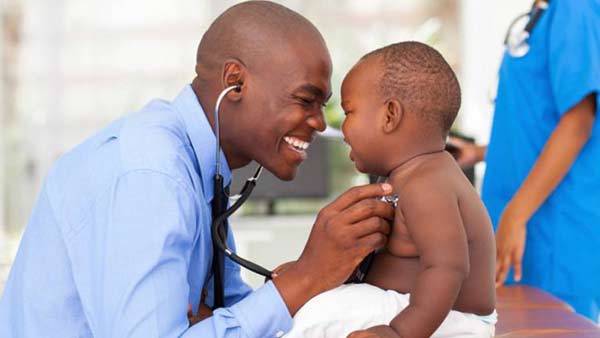
Health professionals are the cornerstone of any health system. Yet the world is facing a global shortage of health workers. A scarcity that - along with the global epidemic of non-communicable diseases - is one of the most critical obstacles to the achievement of the sustainable development goals. Shared solutions are needed that involve extensive changes in global health education and health practitioners’ training.
In developing countries, the health workforce crisis is even more concerning with only 0.2 doctors and 1.2 nurses or midwifes per 1,000 people in Sub-Saharan Africa.[1] In 2013, the WHO estimated a global shortage of over 17 million healthcare workers, mostly in Africa and Southeast Asia.[2]
The underlying problem is a lack of resources and a huge shortfall in educating health workers. In 2014, fifty per cent of all medical schools in the world were located in ten countries. In America, there is one medical school per 1.2 million people; whereas Africa has only one per 5 million.[3]
One of the key recommendations of the “Health professionals for a new century: transforming education to strengthen health systems in an interdependent world” report by the Lancet Commission is “exploiting the power of Information Technology (IT) for learning.”
With Africa, for example, reaching 80% of mobile penetration in 2016,[4] ICTs undeniably represent powerful tools in facilitating access to health workers’ education.
One of the main benefits of digital training is that boundaries do not limit access or participation. A teacher in Kenya can teach the same material in any English-language school. This is why institutions can increase the number of course offerings and the number of students or teachers reached thanks to video and audio streaming of lectures, mobile-based multiple-choice questionnaires, or Q&A for distance training. Open-source learning materials and social networking learning approaches are thus becoming the basis of mobile education.
These mobile tools can be used also for short-term training such as when facing an emergency. To face an epidemic, health professionals must know how to act appropriately.During Ebola, Liberia’s Ministry of Health and Social Welfare partnered with UNICEF and Intrahealth International to provide health workers with online materials that demonstrated the correct practices to avoid infection.[5]
But implementing long-term training programsthat provide health practitioners with consistent and replicable education is most important. The Indian government has recently launched a nationwide mHealth program that aims to train one million community health professionals to reach 10 million pregnant women. As of today, 258,241 of these community health workers have started this training course in nine states, and 147,177 have already graduated.[6]
Amref in Africa is another organization well versed in using ICTs for medical training as they have trained to date 20,000 nurses in Africa using eLearning. Over the last four years, Amref Health Africa has developed a mobile learning solution in partnership with the Ministry of Health, M-Pesa Foundation, Accenture, and Safaricom and used mLearning to educate over 3,000 community health volunteers, thus providing over 300,000 community members with much-needed health education and basic health services.[7]
Training and educational digital-health approaches have the potential to empower health workers in remote areas, improve quality of care at the frontline, and reinforce health systems, as well as alleviate the workload at overburdened health facilities.
[1] “World Development Indicators: Health systems”, World Bank, 2017 (link).
[2] World Health Organization, Atlas of eHealth Country Profiles 2015 (link).
[3] Duvivier RJ, Boulet JR, Opalek A, Van Zanten M, Norcini J, 2014, “Overview of the world's medical schools: an update” (link).
[4] GSMA Intelligence, 2016.
[5] O’Donovan James, Bersin Amalia, “Controlling Ebola through mHealth strategies”, The Lancet, January 2015, Volume 3, No.1, e22.
[6] “BBC Media Centre, Government of India and BBC Media Action Launch Free Mobile Health Education to Millions of Women”, 2016.
[7] Link.
